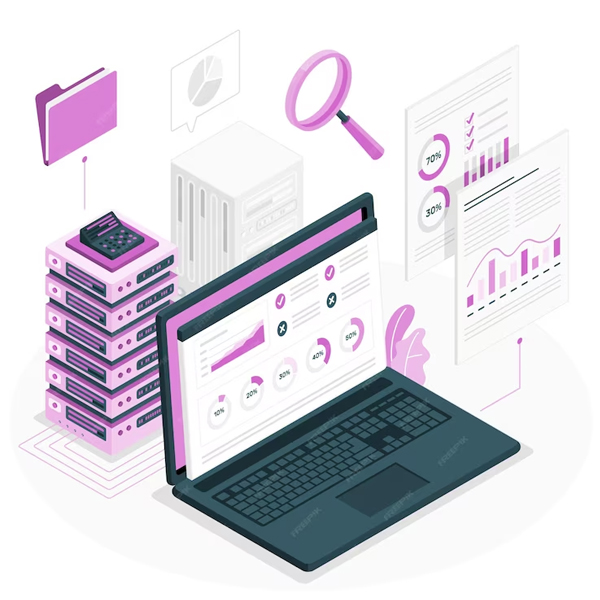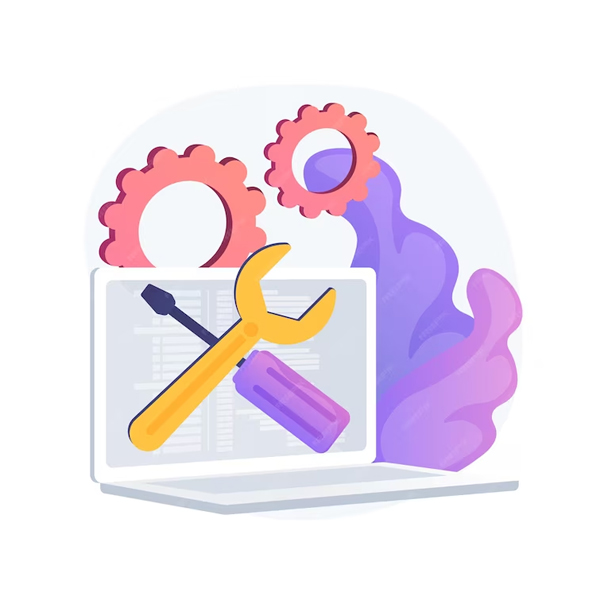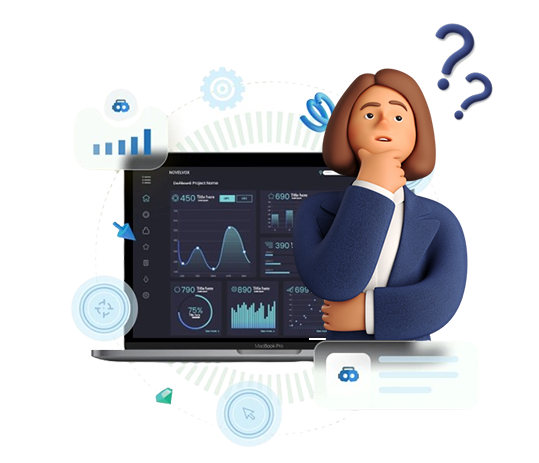Data Analytics and Reporting Services
Charting Your Digital Course: Harnessing Analytics for Strategic Growth

Our Team
Empowering Your Business with Actionable Analytics


Data Analytics and reporting Services: Smarter digital strategies
We believe that Data analytics and reporting are the backbone for data-driven decision making.
Our advanced reporting and analytics deliver business impact, customer behavior, and performance that lets you adjust your strategies for digital success.
We convert raw data into usable industry-leading tools and techniques, analyzing user engagement or tracing emerging trends in the market.
Gain a competitive edge with Seven Fusions’ analytics and reporting service that helps optimize your marketing ROI, discover new opportunities, and make strategic decisions with confidence.


Trends
Challenges of Data Analytics and Reporting
Understanding analytics and reporting is crucial for website data analysis, as they provide actionable insights and strategic guidance, highlighting the differences between the two.


Data Suppression

Limitations of Real-Time Reporting

Data Quality and Accuracy

Customization and Reporting Flexibility
Our Data Analytics and Reporting Services
Data Collection & Integration
Custom Dashboards
Performance Tracking & KPI Monitoring
State-of-the-art monitoring tools allow tracking of KPI parameters that include web traffic, conversion rates, customer engagement, and ROI, enabling businesses to assess and improve marketing effectiveness.
Advanced Analytics & Predictive Insight
Maximum ROI through Campaign Optimization
Industry Benchmarking & Competitive Analysis


Why choose us?



Unrivaled Expertise

Customized Solutions

Thorough Data Analysis

Practical Recommendations

Transparent Reporting

Ongoing Innovation
To make requests for further information, contact us.
- S4, 2nd Floor, Adirshini Plaza, Adchini. New Delhi 110016
- +91 9310925510
- [email protected]



FAQ's
Answer: We generate a wide variety of reports, including daily/weekly/monthly performance reports, sales analysis, marketing ROI reports, user behavior analytics, churn prediction, and financial forecasting.
Answer: Absolutely. We implement real-time tracking systems integrated with APIs, IoT devices, or business apps, allowing instant visibility into performance data.
Answer: We serve a wide range of industries including e-commerce, healthcare, education, finance, travel, retail, and SaaS, tailoring dashboards and analytics.
Answer: We don’t just report data—we dissect your challengers, client trends, and request signals to deliver perceptivity that kkeepsyou a step ahead. Suppose us as your real-time strategic radar.








SEO